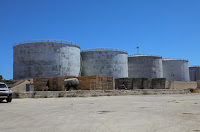Several prominent international figures, including the
European Union's foreign policy chief Josep Borrell, as well as the foreign
ministers of Germany and Iraq, have extended their congratulations to Abbas
Araqchi on his appointment as Iran's Minister of Foreign Affairs.
Araqchi, known for his previous role as a nuclear
negotiator, was appointed by President Masoud Pezeshkian and successfully
secured a vote of confidence from the Iranian parliament, receiving 247 out of
288 votes.
In a phone call on Thursday, Borrell conveyed his
congratulations to Araqchi, expressing optimism that political discussions and
consultations between Iran and the European Union would not only continue but
also expand under Iran's new government.
The two officials also discussed ongoing negotiations aimed
at lifting international sanctions against Iran and addressed recent
developments in the Israeli-Palestinian conflict, particularly the situation in
Gaza.
Araqchi
announced Iran's willingness to manage tensions with the United States and
restore relations with European nations, contingent upon these countries
ceasing what he described as hostile actions against the Islamic Republic.
He emphasized that a key priority for the new administration
would be the removal of sanctions, which would help normalize Iran's trade
relations globally.
Araqchi
reiterated that reviving the 2015 nuclear deal remains a central objective,
provided that Western nations show a willingness to engage constructively.
The signing of the 2015 nuclear agreement, also known as the
Joint Comprehensive Plan of Action (JCPOA), with six world powers showcased
Iran's commitment to demonstrating the peaceful nature of its nuclear program.
However, the unilateral withdrawal of the United States from the JCPOA in May
2018 and the subsequent re-imposition of sanctions against Tehran have cast
uncertainty over the future of the agreement.
German Foreign Minister Annalena Baerbock also congratulated
Araqchi, expressing hope that Germany and Iran could deepen their bilateral
relations by overcoming existing challenges.
During their conversation, Araqchi stressed the importance
of mutual respect and focusing on common interests to strengthen ties between
the two nations.
The two diplomats also exchanged views on regional and
international issues, emphasizing their shared commitment to resolving current
problems through dialogue.
In another diplomatic outreach, Foreign Secretary of the
United Kingdom David Lammy extended his congratulations to Araqchi on his
recent appointment as Iran’s foreign minister.
During a phone call, Lammy expressed that the formation of
Iran’s 14th government presents a fresh opportunity to enhance diplomatic
consultations between the United Kingdom and the Islamic Republic of
Iran.
Lammy also addressed the ongoing conflict in Gaza, urging
Iran to play a constructive role in de-escalating tensions in the region. He
emphasized the importance of dialogue and diplomatic efforts in achieving
stability, highlighting the potential for cooperation in easing the
humanitarian crisis.
Responding to his British counterpart, Araqchi acknowledged
the ups and downs in bilateral relations over the years. He reiterated that
while Iran does not seek to widen the conflict or increase tensions, it will
not relinquish its right to respond to the "criminal and terrorist
actions" of the Zionist regime.
The conversation between the two ministers also covered
other areas of mutual interest, including the ongoing negotiations concerning
the lifting of sanctions on Iran. Both sides reaffirmed their commitment to
continue these diplomatic consultations, signaling a desire for constructive
engagement moving forward.
Franch Foreign Minister, Stéphane Séjourné, also reached out
to Araqchi in a separate phone call to offer his congratulations.
Séjourné conveyed France’s readiness to continue diplomatic
consultations with Iran, focusing on both bilateral relations and broader
regional and international issues.
He highlighted the ongoing diplomatic efforts aimed at
securing a ceasefire in the Gaza conflict, stressing the need for dialogue with
all involved parties to reduce tensions and achieve lasting peace.
Araqchi expressed appreciation for the French foreign
minister’s congratulations and emphasized the longstanding historical
relationship between Iran and France. He reiterated Tehran’s willingness to
engage in constructive dialogue to expand cooperation between the two nations.
He urged France and other Western countries to focus on
holding the Zionist regime accountable for these actions to prevent further
escalation of the conflict.
The phone call between Araqchi and Séjourné also included
discussions on other topics of mutual interest, such as consular issues, with
both ministers agreeing on the importance of continued dialogue to address
these concerns.
Iraqi Foreign Minister Fuad Mohammed Hussein was among the
other leaders who reached out to congratulate Araqchi.
He expressed hope that Iran and Iraq would continue their
close cooperation on bilateral, regional, and international issues.
Hussein also conveyed an invitation from Iraqi Prime
Minister Mohammed Shia' Al Sudani to President Pezeshkian to visit Iraq.
Araqchi, in turn, highlighted the new Iranian government's
commitment to deepening relations with its neighboring countries, particularly
Iraq.
Araqchi received congratulations from Ararat Mirzoyan, the
Armenian Foreign Minister, who expressed his country’s commitment to expanding
relations with Iran.
The two officials discussed issues related to the agenda of
bilateral relations between Armenia and Iran, emphasizing the readiness of both
sides to make continuous efforts towards further strengthening of friendly ties
and strong partnership in areas of mutual interest. Reference was made to
upcoming programs.
They also discussed the importance of supporting Armenia’s
territorial integrity and the ongoing regional developments.
Lebanese Foreign Minister Abdallah Bou Habib offered his
congratulations, expressing hope for continued cooperation between Iran and
Lebanon, especially in resisting Israeli aggression.
In response, Iranian foreign minister thanked Bou Habib for
his congratulations and emphasized his desire for fruitful collaboration to advance
the interests of both the Lebanese and Iranian people, as well as the broader
region.
Araqchi confirmed his intention to visit Lebanon soon and
expressed eagerness to host the Lebanese Foreign Minister in Tehran at the
earliest opportunity.
Syrian Foreign Minister Faisal Mekdad joined in the
congratulations, reaffirming Syria's dedication to strengthening strategic
relations with Iran.
Both Araqchi and Mekdad emphasized the importance of ongoing
consultations and coordination between their countries in the face of regional
challenges, particularly regarding Israeli actions in the region.
These diplomatic engagements highlight the broad
international response to Araqchi’s appointment, reflecting both the
opportunities and challenges that lie ahead for Iran's foreign policy under his
leadership.




















